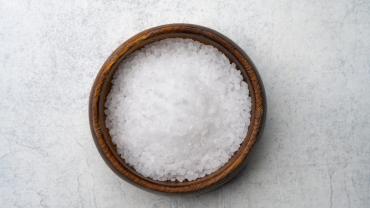
Magnesium (Mg) is an essential mineral that may promote musculoskeletal health, supporting both athletes and the aging population. According to epidemiological studies, Mg intake in the U.S. has decreased significantly from 500 mg to 175 mg to 225 mg per day. Individuals following a typical Western‑style diet consume less than 30% to 50% of the Recommended Daily Allowance (RDA) for magnesium, which is 320 mg to 420 mg per day for adults. Furthermore, magnesium requirements may be elevated in physically active individuals due to increased metabolic activity compared to inactive individuals. Meta-analyses found that although physically active individuals tend to have significantly higher intakes of magnesium than the controls, their magnesium levels still fell below the RDA.
Magnesium is required for proper bone formation, as it promotes the proliferation of osteoblasts (bone-building cells). A systematic review and a meta‑analysis observed a positive correlation between magnesium intake and hip and femoral neck bone mineral density (BMD). Low serum Mg concentrations and dietary intake are common in aging populations and may be associated with bone and muscle disorders or chronic age‑related disorders.
A review of 28 eligible studies evaluating the relationship between Mg status and bone health demonstrated lower Mg levels are associated with osteoporosis, and 30% to 40% of participants had hypomagnesemia; most of the participants were menopausal women, and those who consumed less than the RDA for Mg had lower BMD with a higher risk of fracture. In all studies examined in the review, those who supplemented with various forms of Mg ranging from 250 mg to 1,800 mg per day experienced benefits to BMD and lower risk of fractures.
Human studies suggest proper magnesium status may improve performance parameters in both aerobic and anaerobic exercises and significantly reduce muscle soreness and perceived exertion and recovery.Several cross-sectional surveys report a positive association between Mg intake or serum Mg concentrations and outcomes related to muscle strength, performance, or power, including “grip strength, lower-leg power, knee extension torque, ankle extension strength, maximal isometric trunk flexion, rotation, and jumping performance.”
Magnesium may help mitigate muscle fatigue. Animal studies suggest magnesium may enhance glucose availability in the brain, muscle, and blood, and may reduce or delay lactic acid accumulation in skeletal muscle.
A small human clinical study concluded that magnesium supplementation may improve athletic anaerobic performance, even if the athletes are not magnesium deficient. For 4 weeks, researchers administered a placebo or 350 mg of magnesium per day to 25 professional male volleyball players who were not magnesium deficient, based on erythrocytes, plasma, and urinary magnesium levels. The experimental group of volleyball players exhibited improved athletic anaerobic performance through countermovement jumps and arm swings.
Human studies support the clinical relevance of magnesium for musculoskeletal health, including promoting exercise performance and supporting healthy aging. Unfortunately, magnesium insufficiency is common in the U.S. due to the wide use of demineralized water and soil and the increased consumption of processed foods. Therefore, supplementation may be warranted for some individuals.
By Danielle Moyer, MS, CNS, LDN